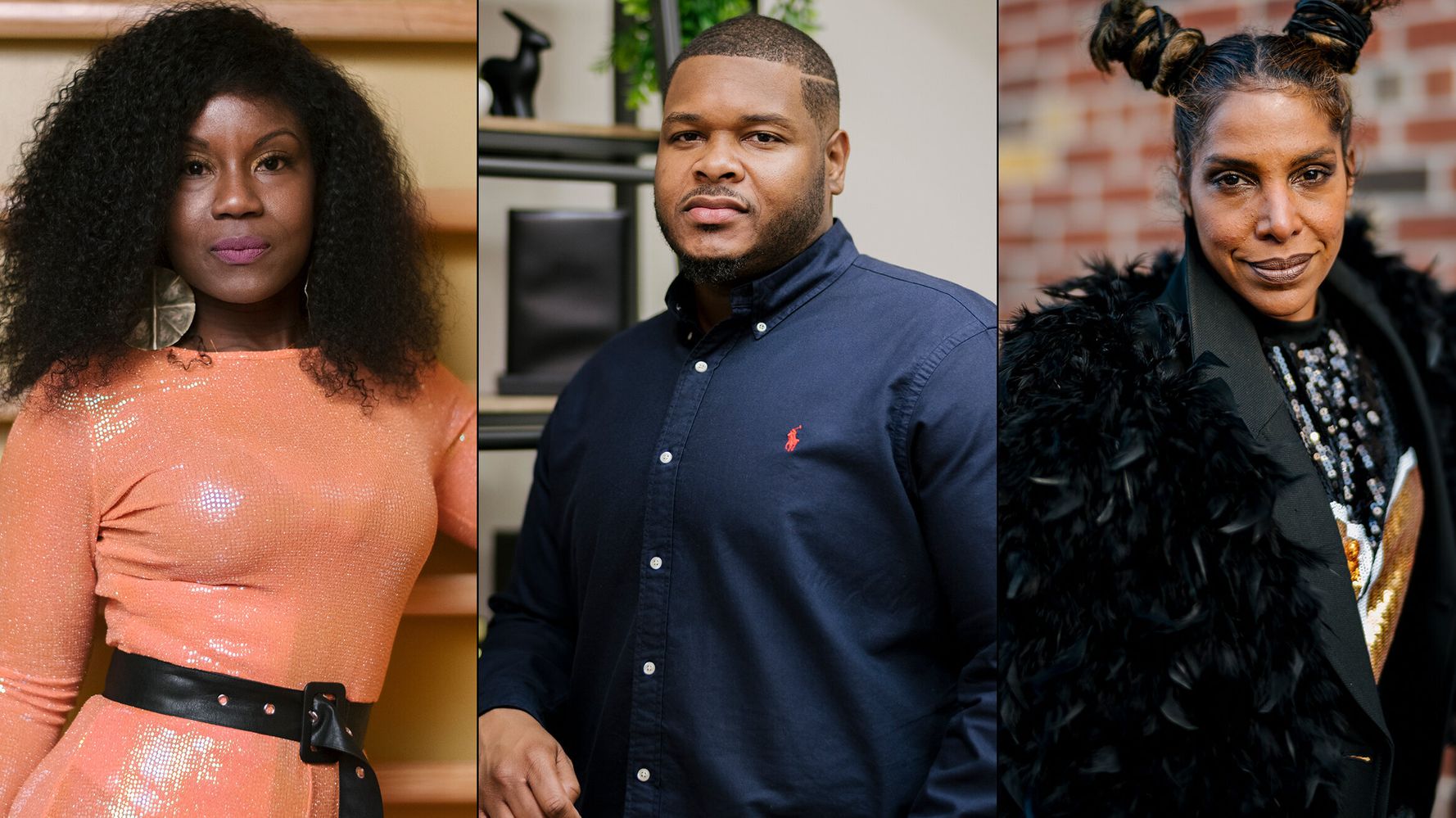[ad_1]
Hair has been a true marker of resilience and pride in the Black community. But due to the emphasis of Eurocentric hairstyles in the United States, Black hair continues to be policed, discriminated against, shamed and unrepresented in the hair care industry.
Work is being done to allow members of the Black community to show up as their true selves. There’s the natural hair movement ― which seeks to affirm natural tresses, kinks and curls ― and policies like the CROWN ACT (Create a Respectful and Open Workplace for Natural Hair), which passed in both California and New York State in 2019, addressing discrimination against Black hair at work.
Black entrepreneurs like Karen’s Body Beautiful, Scotch Porter and Doris New York have taken matters into their own hands by creating products and dialogue centered around Black hair care. We talked to these three founders about rising to the occasion and using their businesses as a means of social uplift for the Black community.
Karen Tappin, Karen’s Body Beautiful
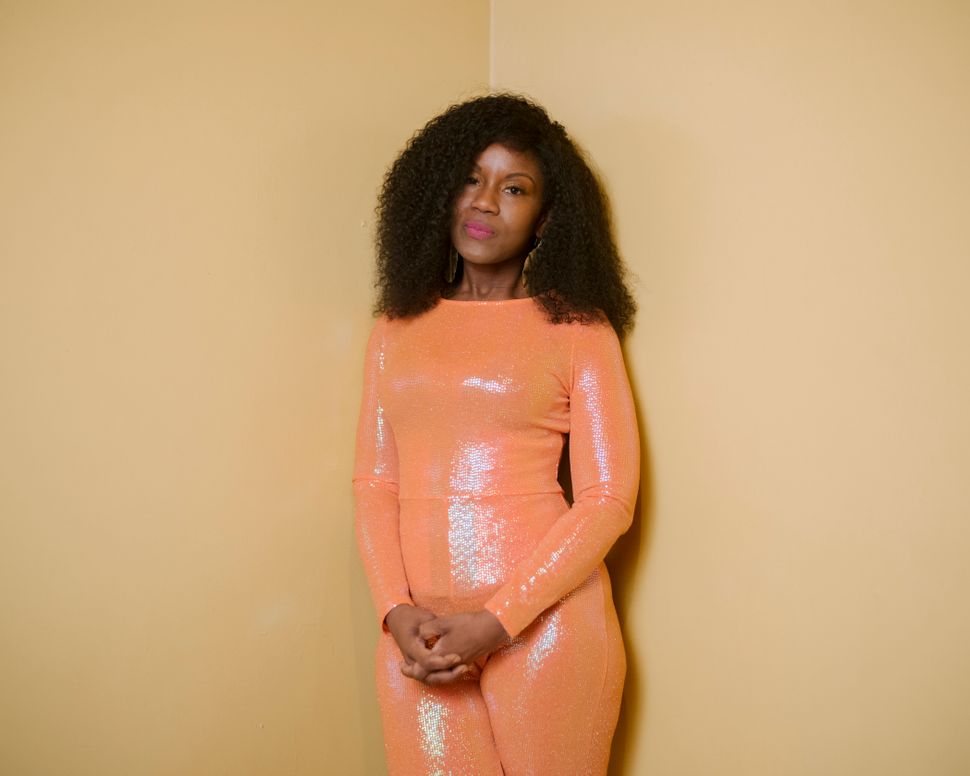
Karen Tappin has always had an entrepreneurial spirit, opening a couple of businesses before Karen’s Body Beautiful.
“I was going to be the boss of me for life,” Tappin told HuffPost. “When I was 15 years old in the 10th grade, my late mother, who was a registered nurse, told me to start her a home health care agency, and I did just that. After that successful endeavor, I didn’t look back. How could I?”
In 1993, two months into her freshman year at the University of Virginia, Tappin started another endeavor called Karen’s Delicious Deliveries, a mail-order business from her dorm room that lasted until 2004. During that time, she decided to go natural and discovered that products weren’t widely available for textured hair.
“Standard ethnic products didn’t work for my hair, and I knew there was nothing wrong with my hair, so I researched the ingredients in these products. I discovered that parabens, formaldehyde and sulfates were linked to cancer or just made your hair drier.”
That’s when Tappin decided to create Karen’s Body Beautiful from her home kitchen using natural ingredients.
“In 2003, I taught myself how to make hair and body products from natural ingredients, sold them to my co-workers, and it was a big success.”
“I debunk natural hair myths and advise women to be mindful of the imagery and natural hair community chatter too focused on idealized beauty.”
– Karen Tappin
Six months later, Tappin quit her job and opened her first retail store. Karen’s Body Beautiful has been on a journey ever since. “I opened my first retail store, built an in-store kitchen in full view of customers, relocated to a larger retail location in 2006, opened a full-service day spa in 2010, opened an 8,000-square-foot factory in 2013, and maintained a mass retail presence in thousands of stores like Target, Kroger and Sally’s Beauty Supply between 2013 and 2016.”
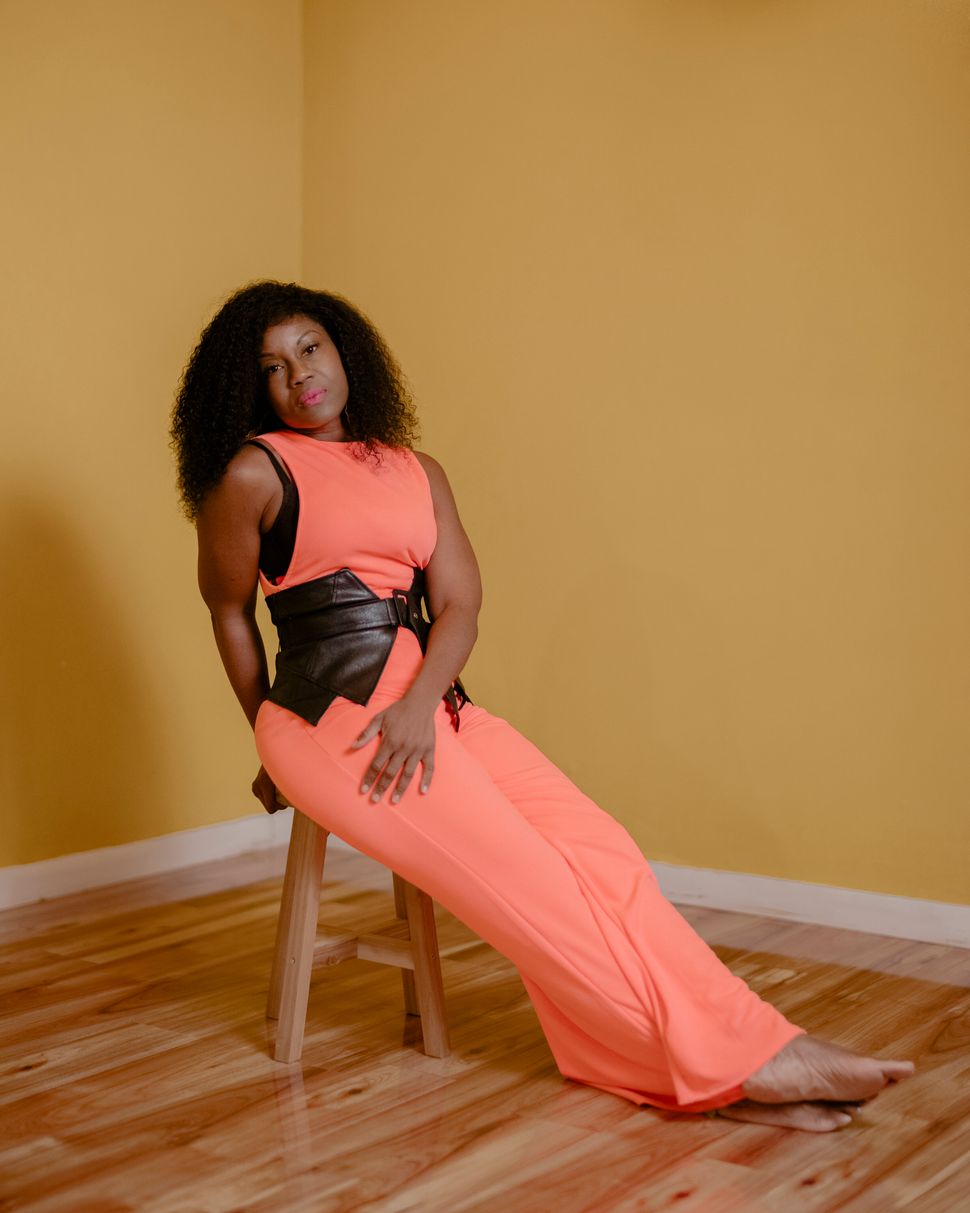
Currently, Karen’s Body Beautiful operates with a direct-to-consumer model by way of her website and other retailers worldwide. For 15 years, her top seller has been the Sweet Ambrosia Leave-in Conditioner that softens, detangles and defines hair. “Countless customers have shared that this product has revolutionized how they care for their hair by making what is sometimes a difficult choice easier to manage for themselves and their children,” Tappin said.
For Tappin, educating her consumers and the Black community about hair care, beauty and loving the skin they’re in is how she uses her business for social uplift. Tappin believes that informed customers are their own best advocates and has begun educating people through a presentation called “Real Hair Talk.”
“I debunk natural hair myths and advise women to be mindful of the imagery and natural hair community chatter too focused on idealized beauty. I impart that self-love, self-acceptance and self-liberation is key in being confident in the skin you’re in,” Tappin said.
Calvin Quallis, Scotch Porter
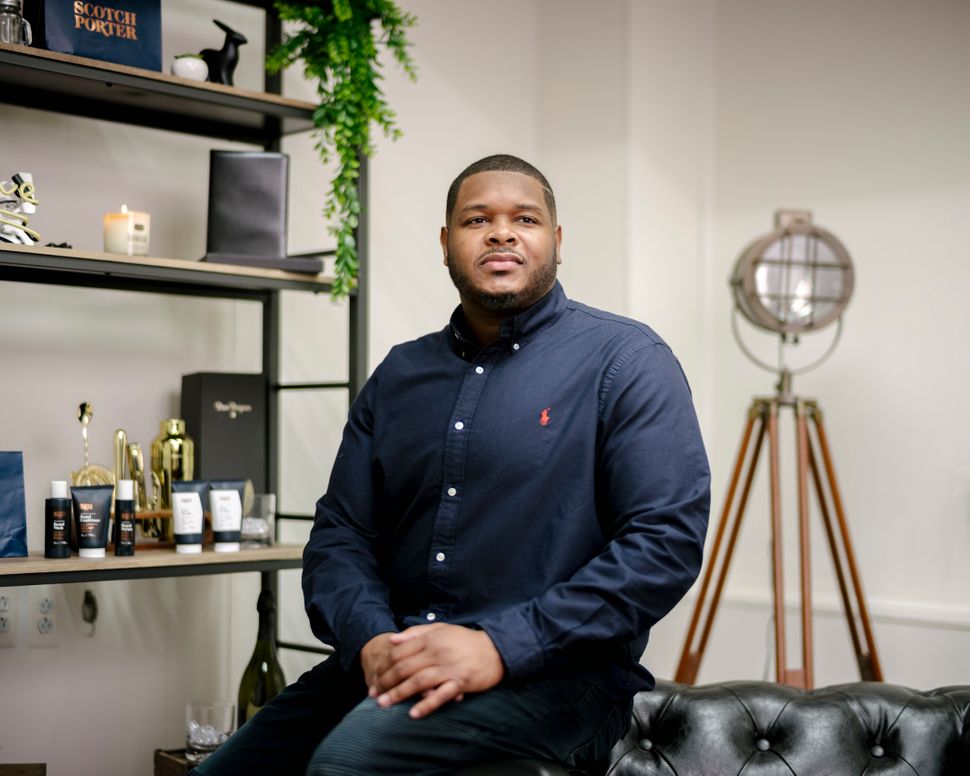
Calvin Quallis’ passion for helping men feel their best came from watching his mother and other stylists transform customers who walked into his mother’s beauty/barbershop while growing up in Brentwood, New York. “The barbers and stylists had this unique ability to help people feel better about themselves,” Quallis told HuffPost. “The customers would walk out as a different person. That experience really stuck with me.”
While owning his own barbershop as an adult and seeing that there was a need for grooming products for men, Calvin came up with the idea of starting Scotch Porter.
“When I owned my own barbershop, a lot of men would complain about grooming issues like dry, brittle and thin hair. So, I went home and began experimenting from the kitchen of my home, with natural ingredients, to alleviate their concerns.”
Overtime, Scotch Porter has gone from providing grooming products to a more holistic approach that serves men’s total wellness needs.
“After years of feedback and listening to our customers, we’ve realized that men want to not only look good, but feel good. Scotch Porter is now in the business of grooming men internally and externally. We’ve shifted our approach from only providing grooming products to a more holistic approach that serves men’s total wellness needs,” Quallis said.
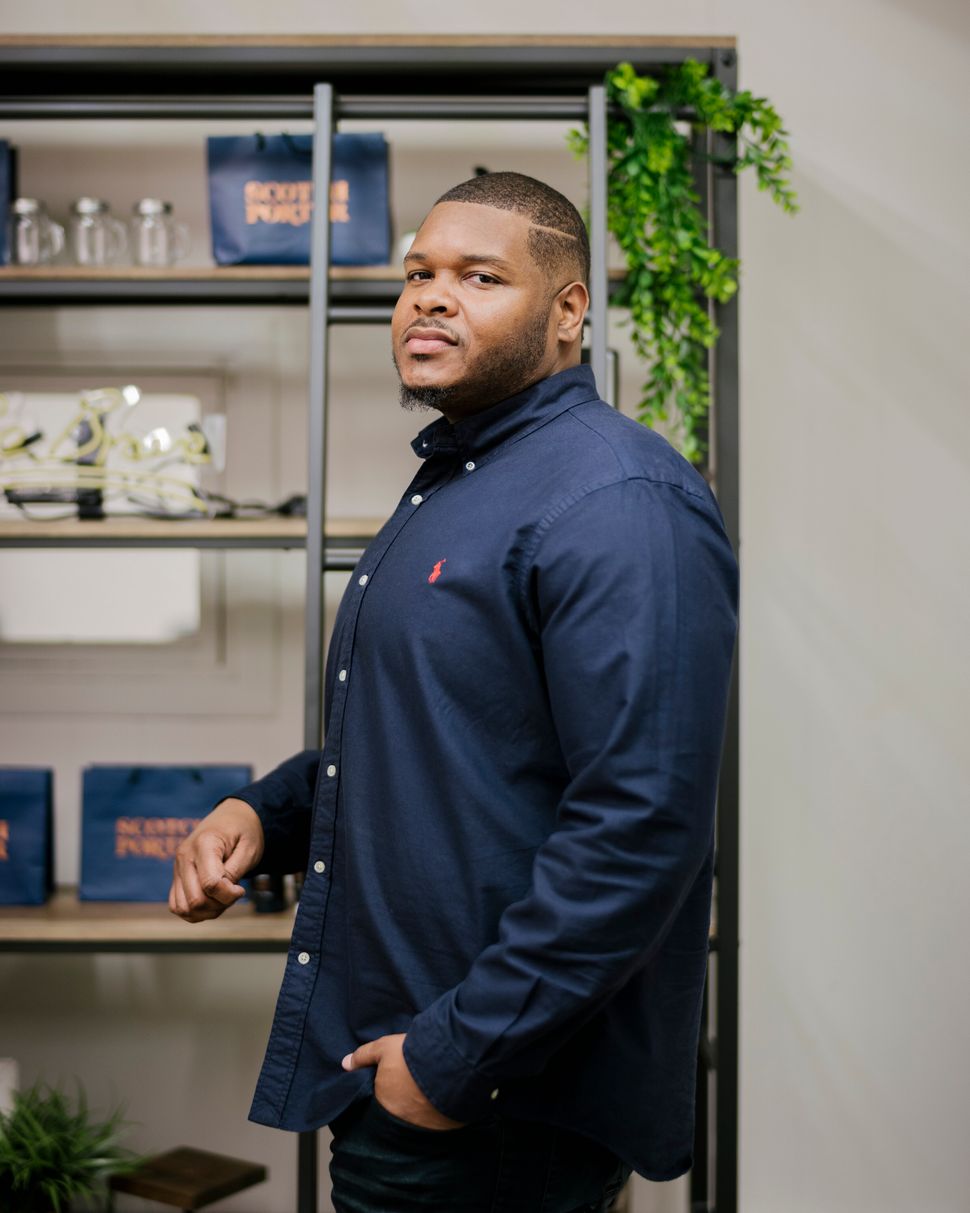
Scotch Porter products “offer better-for-you hair, beard and skin care products that deliver multi-functional benefits that solve big pain points for men,” according to Quallis. “Men have been growing out their hair as an expression of their personal style for a long time and have had to use products from their girlfriends, wives and significant others, that never felt uniquely their own. With the launch of our new hair care line, we’re providing products that are highly effective, healthy and feel like our own.”
Quallis’ mission is a holistic one, “to promote internal and external wellness while arming men with the tools needed to live their best, most fulfilled lives.”
“We’ve shifted our approach from only providing grooming products to a more holistic approach that serves men’s total wellness needs.”
– Calvin Quallis
While Quallis’ products are marketed to all men, he has a distinct vantage point as a Black owner of a hair care company. In recent years, he’s noticed that “men, particularly men of color, have become much more interested in wellness and personal care. We feed that interest by educating and providing experiences that showcase how health, wellness, and taking care of oneself shifts how one feels and performs in their personal and professional lives.”
Quallis makes a point to provide access, opportunity and employment to others in the Black community, helping pave the way for those who have struggled with racial discrimination and bias.
“As an entrepreneur of color, who has attempted to climb the career ladder, and has had limitations placed on me that had absolutely nothing to do with my skill set or abilities, it’s important to me that I provide folks that look like me with career advancement opportunities and fair pay at Scotch Porter.”
Marlene Duperley, Doris New York
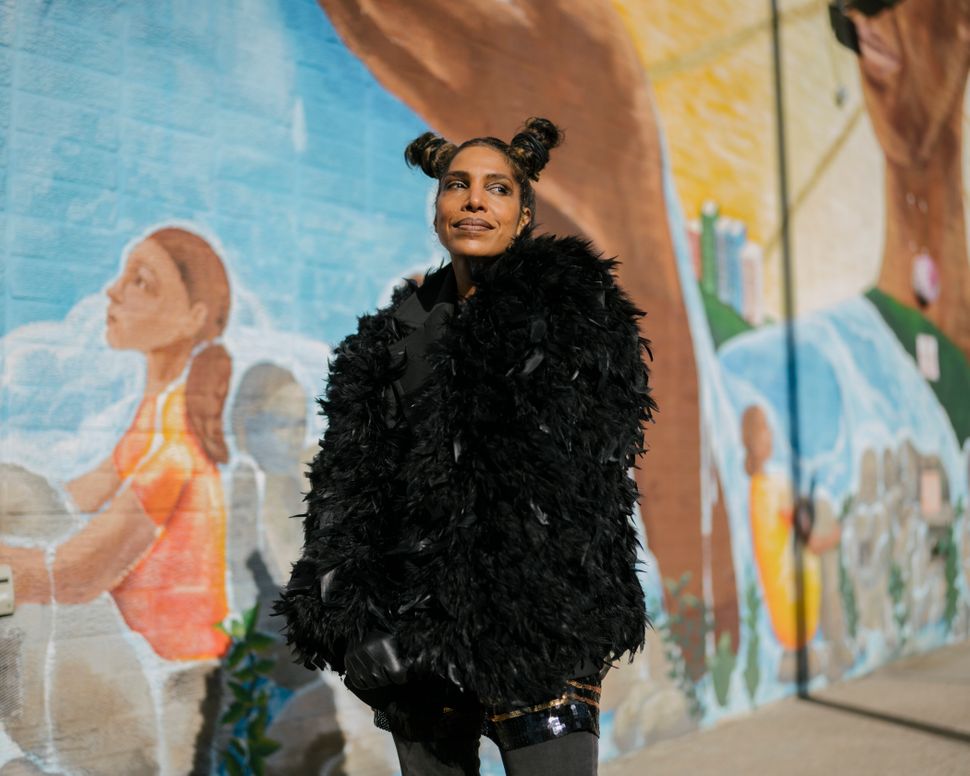
Marlene Duperley’s mother owned a salon in their family home in Queens, New York, in 1974.
“Eventually, she got a brick-and-mortar just a block away from our home which was a neighborhood staple for over 40 years,” Duperley told HuffPost. “She retired from that salon and closed the doors a little over five years ago, in 2014.”
That salon was the driving force behind the current line of Doris New York products that exist today.
“My mom started making hair oil for the scalp and hair 35 years ago and would use it on her clients in the salon. She actually started making it because, as you can imagine, during that time there were very limited resources for Black hair. It became so popular with her clients that they would ask to buy it. My mom would make big batches on the stove and bottle them in glass jars.”
Her mother’s scalp oil became so popular with her clients that they would ask to buy it. The current full line of products, which started eight years ago, includes her mother’s vintage hair and scalp oil, shampoos, deep treatment conditioners and moisturizers.
“The evolution of Doris New York has been more of a confirmation of what great products do, and how they withstand the test of time. They are always the go-to, even when new products hit the market and people rush to try them. We are the tried and true!”
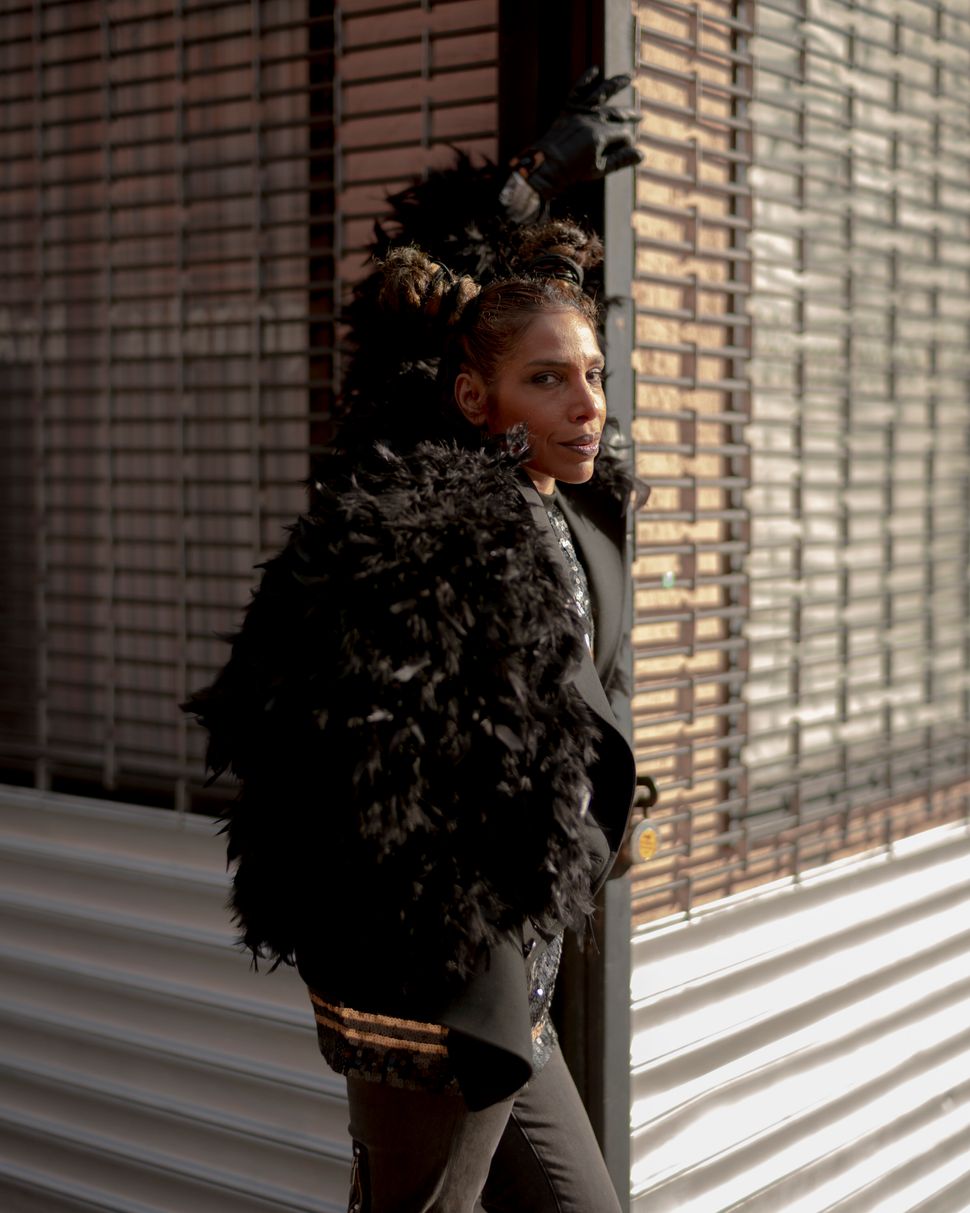
Currently, Doris New York operates using a direct-to-consumer model from its website. One of its most successful products is the Mud Minerals Pack Treatment, which was created by researching the hair of real clients who would come into the salon.
“Based on salon experience dealing with Black hair for over 40 years, we have an amazing gauge on what works and what doesn’t. Basically, it’s not just a need coming from one person. It’s coming from research of well over thousands of people. Different textures, types, lengths.”
“We gossip, laugh, tell stories and create a safe haven for each other greater than most people know.”
– Marlene Duperley
Duperley notes that the salon is an important gathering place for the Black community. “Community salons, like barbershops for men, are meeting places for women,” she said.
“We gossip, laugh, tell stories and create a safe haven for each other greater than most people know. We have had cancer patients, distressed and depressed clients just because of life, love, relationships, you name it, getting their hair done at a place to share sisterhood. It was like therapy wrapped in love. My mom would create accounts for people who couldn’t afford to pay for their hair and allow them to pay whatever they had. She never escalated prices. The level of quality well surpassed the price. Everyone who walked in that salon felt special!”
Duperley took that standard of excellence and poured it into her products and marketing campaigns. “Every campaign was about us, the beauty of us and the exceptional value and worth of us.”
“The greatest part of all of this is how we have aided in how Black women and men see their hair. Our hair is the most complex of all hair types, the most historically influential and hands down the most beautiful! We wanted to ensure that our responsibility in carving out our space in media was well defined and purposeful.”
[ad_2]
Source link

